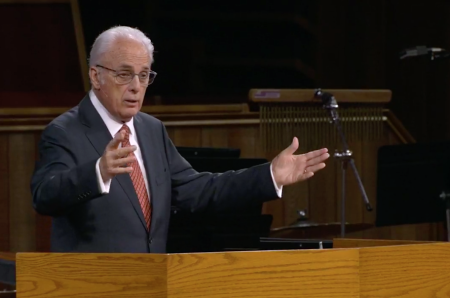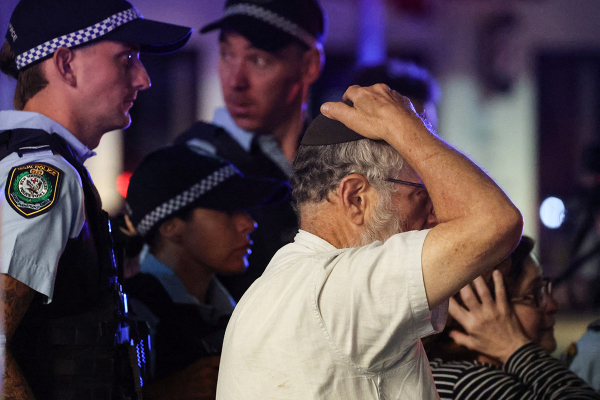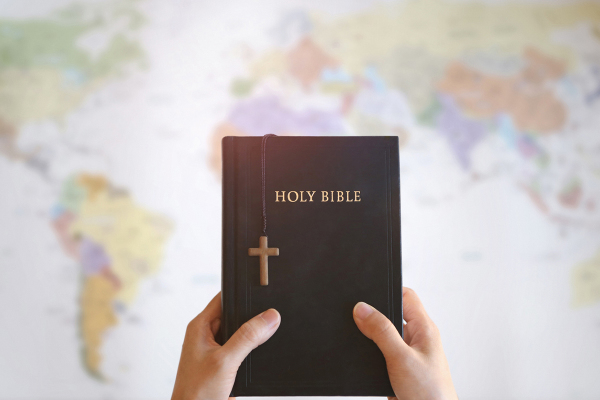Ministry leader questions John MacArthur’s resistance to Calif. COVID-19 shutdown order

A prominent ministry leader has expressed concern over megachurch pastor and author John MacArthur’s decision to keep Grace Community Church open despite a state order.
Earlier this month, California announced that churches and other in-person public gatherings in 30 of its counties would be closed to help curb an uptick in COVID-19 cases.
MacArthur said that Grace Community would remain open despite the order, arguing that the state government had “no right to interfere in ecclesiastical matters in a way that undermines or disregards the God-given authority of pastors and elders.”
“… we cannot and will not acquiesce to a government-imposed moratorium on our weekly congregational worship or other regular corporate gatherings. Compliance would be disobedience to our Lord’s clear commands,” MacArthur stated.
“… when any government official issues orders regulating worship (such as bans on singing, caps on attendance, or prohibitions against gatherings and services), he steps outside the legitimate bounds of his God-ordained authority as a civic official and arrogates to himself authority that God expressly grants only to the Lord Jesus Christ as sovereign over His Kingdom, which is the church.”
Jonathan Leeman, editorial director of the ministry group 9Marks and an elder at Cheverly Baptist Church in Maryland, penned a column in response to MacArthur’s announcement.
Leeman warned churches about following the actions of Grace Community, noting that while he respected some of what MacArthur had to say, he was concerned about certain conclusions.
One was that churches can still meet outdoors under the guidelines and that, in the past, churches have altered their worship patterns in light of national calamities due to government orders.
“Churches in coastal cities during World War Two accommodated evening black-out requirements in case enemy planes hit the coasts. Those churches didn’t insist the government had no right to ‘restrict our worship,’” wrote Leeman.
“In other words, just because you think God will ultimately vindicate your decision to disobey the government on the last day doesn’t mean it’s wise. You might have other options that avoid undue attention.”
Leeman also pointed to the increasing debate over LGBT issues and religious liberty, especially government mandated support for LGBT agenda items for Christian individuals and groups.
“The politics of LGBT tells me our churches may have more occasions to defy government requirements in years to come. Do we want to spend down our capital on pandemics?” he continued.
“Right now, the guidelines restricting churches also restricts restaurants, movie theaters, museum, gyms, funeral homes, non-essential offices, shopping malls, barbershops, and more. As those restaurant and gym owners cast a glance over at our churches, will our refusal to abide by the same restrictions which are causing them financial distress help the witness of the gospel, especially if we could find other ways to comply, such as meeting outdoors?”
Leeman added that while he is also concerned about the “indefinite” timeline provided by California on the restrictions, he was concerned that Grace’s stance implied that the church did not “believe there is a real threat with Covid-19.”
“Again, that is a judgment call they are allowed to make. And that judgement call presumably stands behind their subsequent judgment call to disobey the government,” he added.
“Once more, my goal here is not to necessarily disagree with much less condemn either judgment. My goal is to open up a little space of Christian freedom for other churches to make different judgments, and then to encourage all of us to exercise patience and charity with one another and our churches as we make different decisions.”
California Governor Gavin Newsom has garnered much criticism for his orders restricting in-person worship in his efforts to curb the spread of the COVID-19 pandemic.
This included a ban on singing in church, believed to be a way in which the coronavirus can be spread. Three churches filed suit against the ban earlier this month.
When Newsom banned indoor worship services and small group meetings in as many as 30 counties earlier this month, two ministry groups filed suit in district court.
The Pasadena-based Harvest Rock Church and Harvest International Ministries filed the lawsuit in U.S. District Court for the Central District of California.
“The Governor’s orders impose disparately onerous prohibitions and numerical restrictions on religious gatherings in churches, and even on in-home Bible studies, worship meetings, and life groups,” they claimed in the lawsuit.
“And the Governor has imposed these draconian restrictions on Plaintiffs while openly celebrating and encouraging mass gatherings for protests. The Constitution demands more and so should this Court.”





















